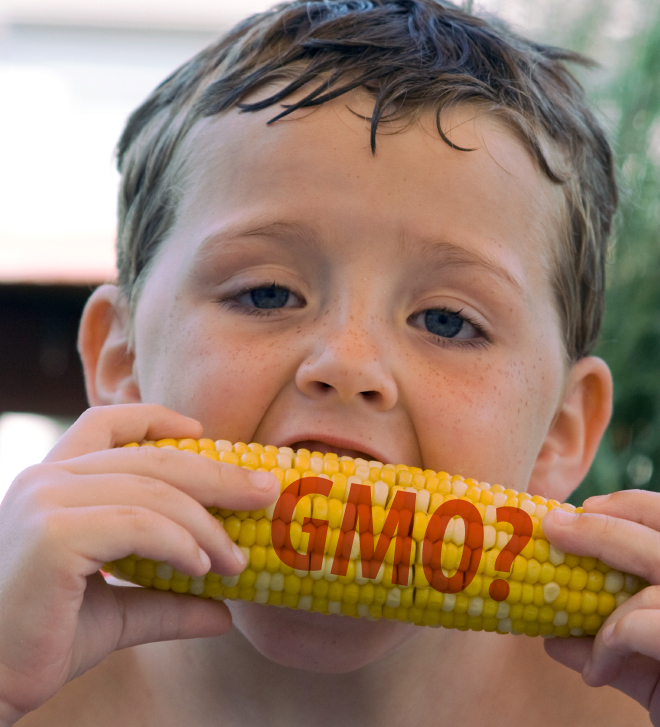Lawsuit challenges “Bioengineered” GMO food labeling
Published: August 8, 2020
Category: The Non-GMO Blog
Retailers and advocates argue USDA rules discriminate against tens of millions of Americans, exempt most GMO foods, mislead consumers, and restrict retailer speech

Advocates for mandatory labeling of genetically engineered foods were unanimous in criticizing the U.S. Department of Agriculture’s National Bioengineered Food Disclosure Standard to label such foods. After several years of fighting for labeling and passing laws in Vermont, Connecticut, and Maine and losing labeling ballot initiatives by close margins in California, Washington, Oregon, and Colorado, the NBFDS was a massive disappointment for GMO labeling advocates.
Now, they are fighting back as the Center for Food Safety (CFS) recently filed a lawsuit in federal court against the USDA challenging USDA’s rules on labeling genetically engineered (GE) or GMO foods, which USDA now calls “bioengineered foods.” The final regulations, issued in 2019, include provisions which will leave the majority of GMO-derived foods unlabeled; discriminate against tens of millions of Americans; prohibit the use of the widely known terms “GMO” and “GE”; and prohibit retailers from providing more information to consumers. CFS is representing a coalition of food labeling nonprofits and retailers, including the Natural Grocers, operating 157 stores in 20 states, and Puget Consumers Co-op, the nation’s largest community-owned food market.
“This case is about ensuring meaningful food labeling, the public’s right to know how their food is produced, and retailers’ rights to provide it to them,” said George Kimbrell, CFS legal director and counsel in the case. “The American public successfully won GE food labeling after more than a two-decade fight, but the Trump rules fall far short of what consumers reasonably expect and the law requires.”
CFS’s lawsuit makes a number of arguments. First, the case challenges USDA’s unprecedented allowance of electronic or digital disclosure on packaging, also known as “QR code” or “smartphone” labeling, without requiring additional on-package labeling. USDA allowed this despite Congress requiring the agency to first study whether digital disclosure would provide meaningful information to consumers. In 2018, CFS successfully sued USDA to release the study, and it showed conclusively that QR codes would fail. But in this final rule USDA went ahead with it anyway.
Second, CFS is challenging USDA’s labeling language restrictions. When on-package text is used, the rules limit it to only “bioengineered,” despite the law allowing use of similar terms. But for 25 years, every aspect of the issue—science, policy, and marketplace—has used the terms genetically engineered (GE) or genetically modified (GMO).
“Retailers and shoppers have relied on the term GMO for more than a decade to identify and avoid GMO foods,” said Mark Squire, co-founder of Good Earth Natural Foods, a plaintiff. “Banning the use of this term and replacing it with a term nobody has ever heard of is misleading and will create massive confusion in the marketplace.”
Third, the case challenges USDA’s severe restriction on which foods are covered and require disclosure. The vast majority of GE foods (by some estimates over 70%) are not whole foods, but highly processed foods with GE ingredients, like sodas and oils. Yet in the final rule USDA excluded these “highly refined” products, unless the GE material was “detectable.”
“A disclosure law that exempts 70% of the foods it is supposed to disclose is not a meaningful disclosure law: it is a fraud and allows producers to keep their GMO ingredients secret,” said Tara Cook Littman of Citizens for GMO Labeling, a plaintiff.
Fourth, the exclusive rules restrict retailers and producers from voluntarily providing more meaningful information to consumers, such as using the terms GE and GMO. The only voluntary labeling allowed is “derived from bioengineering” and only in certain circumstances. The federal law preempted state disclosure laws that used the normal GE/GMO terms and properly required the labeling of all GE foods, so voluntary additional disclosure under the federal rules is imperative.
The lawsuit seeks to have the court declare the regulations unlawful and nullify them, and then return the issue to USDA with orders to fix the unlawful portions of the rules.
Source: Center for Food Safety
To view source article, visit: https://www.centerforfoodsafety.org/press-releases/6100/lawsuit-challenges-bioengineered-gmo-food-labeling




